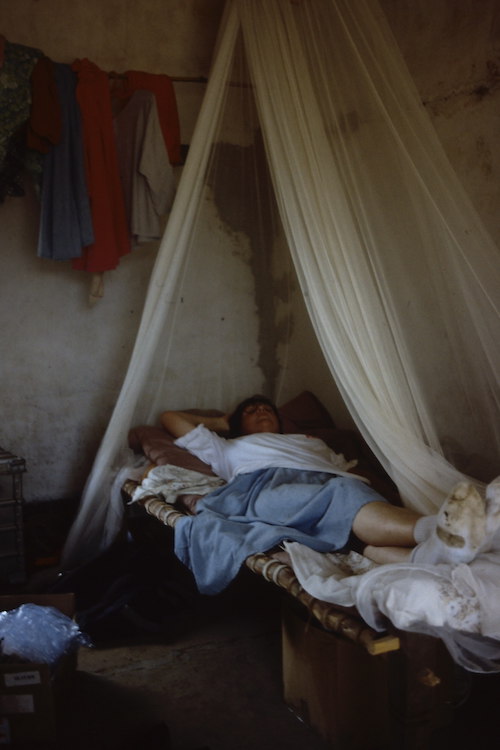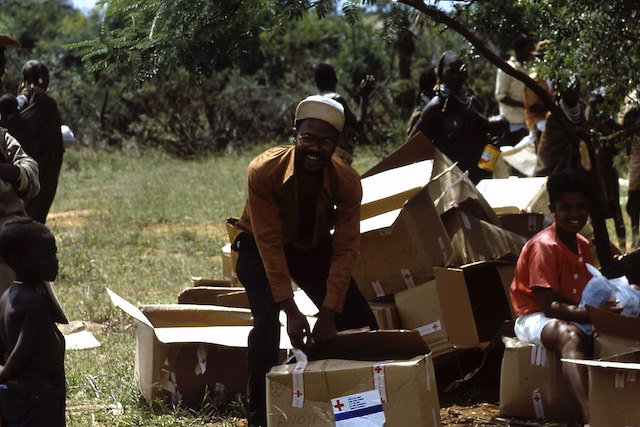In this post I reflect on how COVID-19 has impacted our lives as expats, and what it has taught us.
When I wrote a post on my blog about how different the COVID-19 emergency was for expats, many things had not happened yet. First and foremost, my mom was still alive. I was still to undergo the torture of knowing she had COVID-19 and was dying alone in her nursing home. I had yet to experience the bitterness of getting the news she had passed away via Whatsapp from my brother, whom I could not hug. I had never before gone through something so difficult while being physically separated from my sons, each one of them mourning their grandma alone.

Photo © Cristina Baldan
My mom died at the beginning of April – and from far away I tried to mourn her, to get used to the idea she had gone, and to accept that she had gone in the way she did.
I did fairly well, but one feeling remained and seemed to grow stronger and more invasive by the day: the fatigue of having to cope with the uncertainty about when I would finally be allowed to hug my dear ones again.
This is something that the vast majority of expats all over the world have been experiencing. Like never before, have we clearly realized how difficult living with uncertainty can be. We have felt naked and deprived of control, and we have done that far away from home.
As the need to be near our loved ones grew, we could hardly stand another day without knowing when the borders would reopen and transportation would resume.
Still, we knew someday this would happen. For the very vast majority of us, it was really just a matter of time.
My 31 years of life abroad have repeatedly shown me how privileged I am. The more I got in touch with harsh realities I hadn’t been aware of whilst living in my protected Western world, the more I understood how vast the breadth of my privilege was. With time, I committed to compare my life situations with those of the less fortunate that I have so often encountered during my mobile life.
This is what I am doing during this COVID-19 emergency. I hang on to the thought that I am still part of that lucky minority who has the privilege of dealing with the pain and incertitude caused by the virus with a roof over her head, food on the stove, and good connections to the outside world. Mostly, though, I know that no one will force me out of my passport country indefinitely.

Photo © Cristina Baldan
Like everyone, I guess, I have thought a lot about what I could learn from this unusual situation (having the ability to reflect is a privilege in itself). I believe that by undergoing forced isolation from our countries and loved ones, we have a superb occasion to put ourselves in the shoes of those refugees who will never be allowed to go back to their countries – be it for political or economic reasons.
We know that the advantage of our lives abroad is that we can directly experience things we would never face at home. This helps us understand what others feel when going through culture shock and adapting to a different reality.
Being expats during the COVID-19 emergency has also brought us another step forward. It has made us feel what it means to be forcibly separated from the countries and the people we love, and to manage the hardest losses from afar. It has made us experience powerlessness in a new way, giving a more real sense of empathy for so many individuals in the world as they flee war, violence and misery.
I have made a plan to go back to Italy next Friday. Next Saturday I’ll hug my brothers. By Tuesday the 16th I’ll have my two sons and my son in law with me under the same roof. Every time I think of that moment, I feel so overwhelmed with joy that I cannot control the tears.
I only wish every person on the planet could have the same chance I have. I truly hope we have all learned important lessons from COVID-19, and that these lessons will allow us to make the world a better place for everyone.


